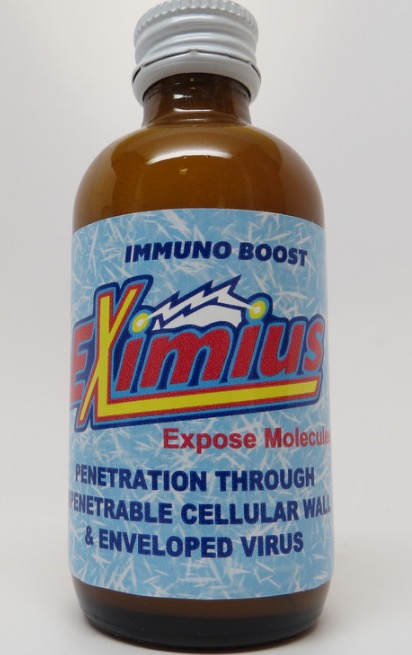
It is no secret that I consider the 1994 Dietary Supplement Health and Education Act (DSHEA) to be a corrupt, harmful farce perpetuated on us by a government that should know better. Because it is just that—I have written about it numerous times. (1-4)
DSHEA was signed into law by President Bill Clinton in 1994, but really this was bipartisan buffoonery. Sen. Orrin Hatch (R-Utah), (5) cosponsored it with Tom Harkin (D-Iowa) (6), and it remains the quintessential example of how crafty language can be used to circumvent science and the FDA. This was intentional.
There can be no better example of both the built-in sleaziness of the act, and how it enabled the supplement industry to get away with murder, than the recent, disgraceful (but hardly unique) cancer claim scandal that is now in the news again thanks to FDA taking action against 14 companies selling illegal, unethical, immoral and fraudulent cancer treatments. That this happened at all is because politicians tied the hands of the FDA, stripping the agency of power to regulate what supplements can be sold, instead only being able to act after a problem has been detected. Which is what has happened. Again. I wish this was not "business as usual" in the industry.
But it isn't. It's more of the same. The best we can say is that it is a small victory that the FDA sent warning letters to 14 US-based companies, and advisory letters to four more. They have been robbing the public using a total of 65 phony cancer treatments. Here is one.

"This product is promoted with unapproved claims to treat or cure various types of cancer. FDA warns consumers to avoid unproven and potentially unsafe products sold as treatments for cancer."
While exploiting the fear of cancer may be worse than selling useless and sometimes harmful (4) garbage, it is pretty common for people who sell supplements. In just a few months in 2017, the FDA has already issued "Recalls - Health Fraud" letters to six companies, mostly for marketing so-called herbal supplements that were spiked with a prescription or banned drug—the most common form of violation.
Sadly, the only time supplements do anything is when they are spiking them with a real drug. And it's almost always bad.
If you are wondering how any industry can get away with this, the answer is quite simple. They have made full use of the intentional doublespeak built into DSHEA. Supplements, even if they are untested drugs, can simply put the following disclaimer on the label. If it is hard to see, this is purely intentional.

The disclaimer creates a bizarre distinction between supplements and drugs. Their labels make it quite clear that the product is not a drug, at least technically but a product that will diagnose, treat, and cure are all part of the FDA definition of a drug.
Above the tiny disclaimer, they claim in plain sight something like this: (7)

Terms like "helps", "supports", thanks to the intentionally sloppy language in DSHEA, enables supplement sellers are to conditionally claim benefits, knowing that most of the population will take that those words to mean "treats," even as companies evade the aegis of the FDA by using a carefully crafted disclaimer at the bottom.
This is obviously legal doublespeak, but it enables a giant $30 billion industry to have it both ways - selling something that people will unquestionably think will help them while at the same time distancing products from the demonized word "drug" that people who buy supplements dislike so much.
Perhaps phony cancer treatments will finally shine much needed light upon a very dark industry, enough so that the essence of DSHEA becomes a policy discussion.
Although I doubt it. There is just too much easy money to be made, and the anti-science beliefs of so many people make them an easy mark. Pathetic (8).
NOTES:
(1) "Science Vs. Politics On Supplements: Who Do You Believe?"
(3) "Poorly Regulated 'Herbal Supplements' Could Be Your Worst Nightmare."
(4) "Liver Let Die: Gambling With Supplements."
(5) Hatch's home state, Utah, has a very large supplement industry. This is no coincidence.
(6) We can also thank Harkin for the Office of Alternative Medicine, which got renamed as National Center for Complementary and Alternative Medicine, which got renamed as National Center for Complementary and Integrative Health, and is still just a $125 million way to show alternative medicine still doesn't work.
(7) From internet Supplement huckster Joe Mercola's "fermented ginger." Please.
(8) If you *really* want to see something pathetic, the clinical trials for a natural boner supplement are so bad that they actually managed to prove that their stuff doesn't work, although their ads say the contrary. Yep- DSHEA again. See: "ED Supplement Claims Don't Stand Up To Scrutiny."



